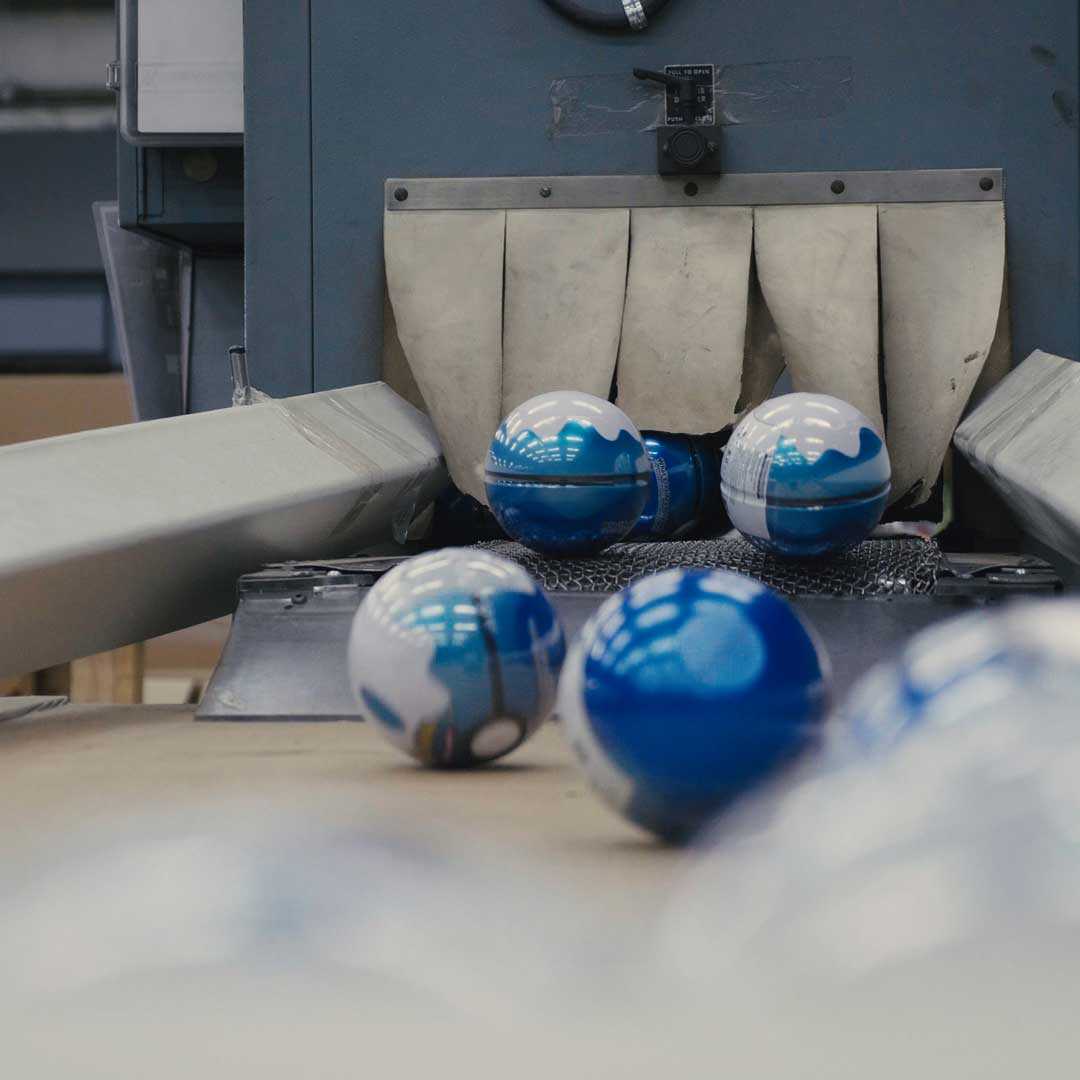

Customer happiness is regarded as the lifeblood of every company. Companies that understand and meet the demands of their consumers are guaranteed to succeed in any field. That's because happy consumers are more likely to buy from you again. Maintaining client loyalty is also essential for profit growth. The profits from sales are then utilized to expand the business.
Order fulfillment is a business operation that directly influences customer satisfaction. It is the act of delivering items to a consumer. Order fulfillment includes sophisticated business procedures such as product manufacture, preparation, handling, and delivery.
All businesses must succeed in order fulfillment because that's the final step with the customer. But if you're struggling, keep reading for our tips.
Table Of Contents
What Are The Steps Of Order Fulfillment?
Let's start by reviewing the phases of the normal e-commerce order fulfillment process that make up effective order fulfillment.
- Receive an online order
- Process the order in your system
- Send an order received notification to the customer
- Create a request for the warehouse to fulfill the product
- Order is picked out of inventory
- Then it is packed into a shipping materials
- Finally, it is shipped in the mail
- A shipping notification is sent to the customer
- Order arrives on their doorstep
- Delivery notification is sent to the customer
The 5 Challenges Of Order Fulfillment
Next, let's break down the challenges. During the order fulfillment process, businesses confront a number of obstacles. The following are the main elements, plus various other complicated issues are among them.
- Demand planning
- Inventory management
- Production Capacity
- Supply Chain Optimization
- Logistics Planning
The issues that most businesses have with order fulfillment can be divided into five key categories.
1. Planning For Demand
The goal of demand planning is to know in advance what the demand for each product will be and schedule manufacturing accordingly. This includes a company's efforts to try to generate new customers through marketing or promotions, which can help them get ahead when it comes time for producing inventory.
But you're in trouble if you don't have the accurate data to have prediction models that can help you plan for these increased selling periods. Because you'll be listed as "sold out" for so long that customers may stop coming back.
2. Manufacturing Capacity
One of the most critical factors that determine how fast and easy it is for you to fulfill an order comes down primarily to two things.
What kind of product do I have available in my warehouse at any given moment?
Can those products be manufactured quickly enough so as not to leave customers hanging when they want their products?
If you can't manufacture your items fast enough, or your suppliers are too busy, then it can lead to huge fulfillment challenges.
3. Managing Inventory
The goal of an online retailer is to ship products when they are ordered. This can be difficult if there's a shortage or out-of-stock on the items customers want, but it will ensure that you meet their expectations.
You need an accurate inventory of your products so customers can place their orders without worrying about delays or backorders.
If you don't know how much inventory you have, how can you order more?
4. Supply Chain Execution
When popular client items are low or out of stock, how quickly can you manufacture more products to get them back in stock? These questions address the need for quick response times when supplies run low.
Then how long will it take to get to the warehouse to be prepared for fulfillment?
The larger the gaps in your supply chain, the more problems you will have.
5. Overall Logistics
What are your plans for shipping the items once they're ready to ship?
How long will it take to be prepped for shipping?
Do you have enough packaging protection to ensure safe transit between warehouses?
Try to think of all the things you would want in an order fulfillment process. All aspects, from when a customer places their first inquiry through production and shipment, are important aspects that need attention if they're going to be fulfilled successfully.
Related: What Is A 3PL?
1. Enhance The Order System
The first step in order fulfillment optimization is to find methods to improve the ordering system. Every customer's amount and kind of order is tracked by the ordering system. Orders may be botched up if you don't have a good ordering system in place, and consumers may be unsatisfied.
You can improve your ordering system in two ways.
Increase Order Management Efficiency
The processes involved in managing customer orders or purchases are referred to as order management. To make these operations more effective, businesses require an order management system.
With the help of an order management system, you will be able to automate most if not all aspects in your company's warehouse and production procedures. By linking it with one or more top-rated execution systems on market today, this allows businesses like yours unprecedented levels efficiency when handling orders from customers around world!
Create An Easy To Use Website
Your website is the first thing visitors and potential customers see when interacting with your business, so it should be orderly. User-friendly websites also ease order placement that can eventually lead to fulfillment of products or services requested by patrons on this site!
Seamlessly Integrate Your Databases
You likely don't make the products you sell in-house. Your online items are most likely obtained from a variety of vendors, warehoused, and then drop-shipped to your consumers.
The only way to provide a quality product is through seamless connections with your suppliers. An order management system can help you do just that by communicating smoothly between systems and supplier's so they know exactly when shipments will arrive at their destination, eliminating any potential delays or surprises on both sides of the process.
Related: Benefits Of Contract Packaging
2. Safe Product Handling
Product handling is also an important part of the order fulfillment process. It entails careful storage to ensure that the product lasts as long as possible.
To maintain the safety of their products, businesses use one of two standard storage procedures. They either keep everything in-house or outsource it to a third-party storage company.
In-House Storage
The term "in-house storage" refers to a company's responsibility for the items it sells. The corporation maintains a facility or a warehouse to keep its merchandise in this situation.
Outsourcing Storage
Outsourcing your storage needs can be a great way to cut down on the costs associated with owning and maintaining an in-house facility. The third party will handle all of these tasks for you, so there's no need spend money unnecessarily.
3. Accurate Inventory Keeping
The basis of a company's order fulfillment process is inventory management. It's a comprehensive list of stuff in a logical sequence. A good inventory procedure guarantees that the proper amount of stock is kept on hand.
Inventory management also helps you to maintain track of inventories and determine what things need to be manufactured or purchased. Inventory is crucial in the order fulfillment process because customers can only buy products in stock.
Standardize The Inventory Process
Without a standard system for inventory recording, businesses can easily miss out on valuable items. It is important to schedule regular days where all the records from throughout your store will be compiled and updated so that there are no mistakes or confusion about what's available in stores at any given time.
Create An Accurate Database
A database is an inventory management tool that will keep track of the number and kind in stock for each product you sell. To set one up, just record all your products on a spreadsheet or notebook page-by-page with their current quantities listed beside them.
End-To-End Order Visibility
The more connected your supply chain, the better. With real-time access to inventory and order fulfillment processes you can be sure that there are never any surprises on what items will show up at store shelves or in customer hands!
Your e-commerce customers should also be able to see if an item is in stock and, if quantities are limited or quantity matters, how many products are available.
End-to-end visibility refers to this level of transparency, which is critical for both customer pleasure and accurate order fulfillment.
To ensure that you're always in stock, it is important to monitor the database. This will help with any discrepancies and keep your business profitable.
4. Logistical Processes
The processes involved in ensuring that items are effectively transported to their final destination are referred to as logistics. Coordination between employees involved in the procurement, storage, and transportation of orders is required for proper logistics.
Delegating tasks is an effective way to make sure that your company's business runs smoothly. You should spend time understanding the strengths of each employee so you can assign them to key positions where they'll be most productive and helpful for achieving goals set forth by the management team, stakeholders, or clients alike
Demand Forecasting
With the right forecasting methods, you can keep your inventory levels within expected ranges by knowing what customers are likely to demand at any given time. Be prepared for their needs when they arise.
Data Should Inform Decisions
You probably collect a lot of data on a regular basis, but if that data just sits in a document and isn't utilized to enhance your operations, it's useless since it's not being leveraged correctly.
When you notice that an employee is taking twice the amount of time to complete a task, use this information for education or reassignment.
The data from your customers’ orders can be used to improve the delivery of future shipments.
Stock Level Accuracy
Your stock levels should always be up to date, even if you’ve only used them for orders. Scenarios like returns and damages can have a big effect on the accuracy of your stock numbers, so it is important not just to keep an eye on what's going out but also to make sure everything comes back from wherever they wander off!
Make sure that every change is reflected in your inventory as quickly as possible. With the capabilities and knowledge we have today, it is completely necessary for data to be used.
Managing Stock Transfers
The most efficient way to transport goods is by air, but it's not always possible. There are other methods for transporting pallets and packages that can be used in case of emergency, such as ground transportation or even shipping via sea.
To ensure that all warehouses have enough products on hand based on their history when fulfilling orders from customers worldwide, we need a continued flow between locations so they're never too far away, either through air shipment or regular roads. If necessary, just regular roads will do!
When you use a distribution center with ample stock, it can help your business overcome any unforeseen surprises and ultimately ensure a perfect order fulfillment process.
5. Choose The Right Carrier
You’ve spent a lot on perfecting your product, but now that you're ready to sell it, there's one thing left: shipping. The long wait for orders can be frustrating and time-consuming - not just from the customer's perspective either! You need enough inventory so people don't start getting frustrated when they haven't received their purchase yet...or else what good is all this hard work?
You can't afford to let your shipper disappoint you and underperform regularly. Your customers will take their frustration out on your reputation, not the carrier!
Use a reliable shipping company that offers real-time, accurate order tracking. If you notice an increase in late or damaged deliveries from your current shipper, it may be time to find another one!
If this is the case, it's essential to put time and effort into locating a new and better shipper who can satisfy your fulfillment needs.
Multiple Shipping Locations
It's not unusual for a customer to want their order split shipped, meaning one shipment with delivery at multiple locations. This can be considered challenging in the fulfillment process, but managing different drop-off points is a great service skill you should master to create significant value for your clients!
6. Organization Creates Success
Mise-en-place is a term used in French cuisine to describe the process of ensuring that every necessary tool for making food, from knives and cutting boards all the way down to pots or pans, are neatly positioned at hand before starting. It's believed that if you can't find what you're looking for, then chances are it isn’t where it is supposed to be--, and this could result in an accident during cooking, leading to a waste of time and decreased quality of the overall meal experience.
When you invest in a well-organized warehouse, your efficiency will increase, and so too will the likelihood of not only completing all orders but also missing none. In turn, this means that any delays or losses incurred by being unable to find items are greatly reduced because everything is where it should be, at least partly thanks to good organizational skills!
Standardize Your Process
Building a successful order fulfillment process is not easy. However, it's important that everyone in your business knows their role and can complete daily duties without question if needed to do so by you or anyone else at the company. This will create more satisfying work environments for all parties involved.
Inconsistent treatment of orders will drive customers crazy and mess up your staff's heads. Your business won't survive if you don’t change it soon!
To avoid the chaos of an unorganized process, you need a system that is always in effect. This will help ensure your customers receive their orders on time and without hassle from start to finish.
7. Work With A Co-Packer
The Co-Packer is a company that can help retailers and manufacturers alike meet the heightened needs of this time. Contract Packaging Services have become more popular because they manage every step in their process, from packing up goods at your warehouse or factory all the way through distribution—making sure you get what's best delivered right when it matters most.
Customizable Plans
To guarantee that your demands are addressed, the contract packaging procedure should be tailored. A productive assembly strategy will be developed, implemented, and then evaluated and altered as appropriate. For best performance, a flexible strategy is essential.
Contract packaging firms try to maximize space and labor efficiency while learning about the products and packaging they're dealing with to provide the best solutions for the job.
Quality Control
You can select a contract packaging partner that uses cutting-edge inspection technologies. To guarantee your criteria are satisfied, you should undertake verification and quality checks throughout the process.
Full-service contract packaging provides the machinery and workers necessary to ensure that your product is secure and meets all quality standards, even when speed is of the essence. Experts in this area work with a flexible and skilled staff. They regularly invest in the most up-to-date assembly line equipment.
Logistics
A contract packaging specialist will work with you to do the job quickly, whether it's storage, distribution, or product tracking.
Outsourcing may be intimidating for companies who want to ensure that their products are handled appropriately. The co-packer works as an extension of your company. Their goal is to ultimately save you money and time.
8. Communicate With Your Customer
Communicate with your customers throughout the entire process of making and shipping their products. And we aren’t just talking about a simple "Thank You for Your Order" email, either!
When your customer service team is with you, they're able to provide real-time updates on order status—from when an item has been received and in process to when it's shipped or delivered—all without any gaps in communication!
Order Editing
With our order fulfillment process, you'll easily manage any changes in your product stock and customer requirements. This way there are no last minute headaches or stress.
This is an excellent way for businesses to avoid incurring significant overhead costs. Purchasing from suppliers who charge change order fees not only saves them money but also allows the business owner more control over their inventory flow, which in turn benefits both parties involved!
9. Providing After-Sales Care
After-sales care is a crucial component of any business. It refers to the services and assistance given after customers have already paid for products but before they receive them!
Warranty specifications should be included in the contract so both parties know what they're getting. This prevents disputes once ordered products are successfully delivered, which is important for a smooth business relationship between seller and buyer!
10. Accept Returns & Refund Fast
You don't need to be anxious about returns. In fact, 30% of online purchases are returned, and that's just the way things go sometimes!
That said, if your customer has an unhappy experience with their purchase, then it’s important for you as a business owner or manager (or employee) to ensure they get everything taken care of ASAP so no more problems arise in future visits—because who wants another problem on top?
Maximize efficiency by working with suppliers who accept returns, charge zero restocking fees, and provide easy refunding or replacement processes.
Be clear about your return policy so that customers know what to do in case of an issue. This includes developing smooth reverse logistics procedures.
Work With A Co-Packer Today
To have a successful order fulfillment process, you must be organized, consistent, and in communication with your customers. Additionally, you should work with a co-packer to help manage your inventory and returns and ensure a smooth refund process. Any small business can have a successful order fulfillment process as long as it follows these tips.
If you want to work with a co-packer to increase your order fulfillment process, contact Bennett Packaging today for a custom quote!




